In every household and every community in Papua New Guinea, telling stories is how one generation connects the next to the past and prepares the next for the future. Stories are powerful ways that experience, knowledge and cultural identity are shared. Given the important role that stories play in the lives of children, adults and elders everywhere in Papua New Guinea, it is not surprising that “Ol stori bilong yu-mi” is a common saying in Tok Pisin.
To capture and share stories that carry great meaning and belong to everyone, the Papua New Guinea National Film Institute (NFI) and the Wildlife Conservation Society (WCS) launched the Conservation for Culture (C4C) program. C4C is an innovative effort to help the next generation of story tellers to use 21st century technology to record and amplify the stories of the past and those yet to be told.
By capturing and sharing stories, C4C will ensure that the thoughts, concerns, aspirations, interests, and practices of traditional communities are heard not only around a fire with family and friends, but reach the highest level of government, and reverberate around the world. C4C will help elevate voice that speak loudly within their communities but are seldom heard or listened to outside their lands.
The C4C program was introduced by WCS to the 4 communities involved in conservation in the three provinces of the Highlands in November of last year during the 2nd inter-community meeting held in Kwiop. In particular, the process through which NFI, WCS and the community based organisations (CBO) would together evaluate and select the best man and best woman for video story telling amongst the candidates in each community was clearly presented.
In mid-December 2021, NFI and WCS kick-started the first selection of the 2 best candidates in Mauberema, Simbu Province, and ran a 5-days of basic training that included script writing, filming and editing, in partnership with the CBO MENCERTC.
Initially, the community provided 23 candidates. Each candidate learned how to combine a series of shots (video segments) into a scene, and how to combine scenes into a story. As a test all candidates were asked to produced a short film on managing a tree nursery as a step toward reforesting degraded community lands. A panel of judges reviewed all the short-films and evaluated both the scripts and the quality of the video production. Seven video story-tellers (5 men and two women) were selected to create a second film, but this time to tell a story of their own design. For the second time, the panel of judges reviewed each film and interviewed each candidate to better understand their motivation and commitment to the concept of C4C. The following day, the judges with the support of Mauberema community leaders announced the two chosen candidates, Kaupa Eremuge and Cecellia Sine, from Mauberema. WCS and NFI are now planning to replicate the selection protocol in the 3 remaining communities (Danbagl, Miruma and Kwiop) in the first quarter of 2022 to select the last 6 best candidates to join Kaupa and Cecellia. Together these 4 men and 4 women representing their community will receive an additional 2-week advanced training in Goroka within the first 6 months of 2022.
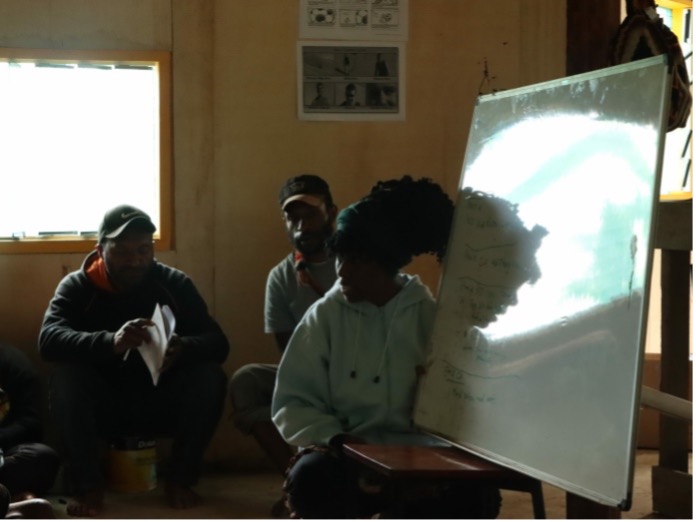 |
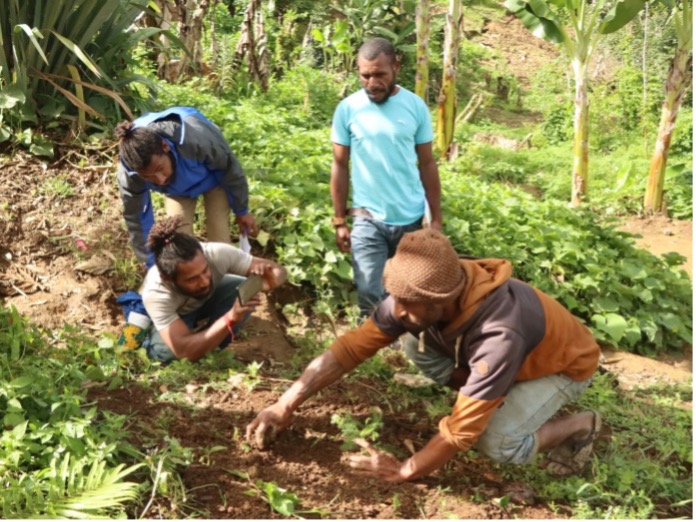 |
| Image 1. Introductory lessons to understand the concept of storytelling and the various shots led by Michelle Baru, Director of the National Film Institute© WCS PNG |
Image 2. Each of the 23 candidates from Mauberema filmed under NFI observation and acted as a subjects for a group-made script © WCS PNG |
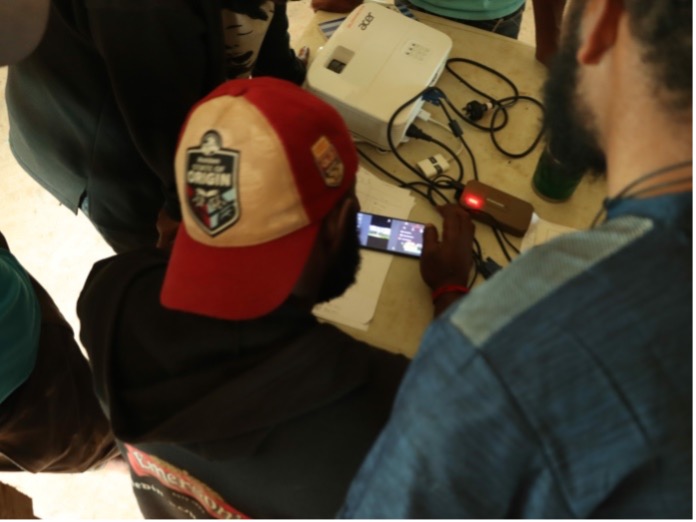 |
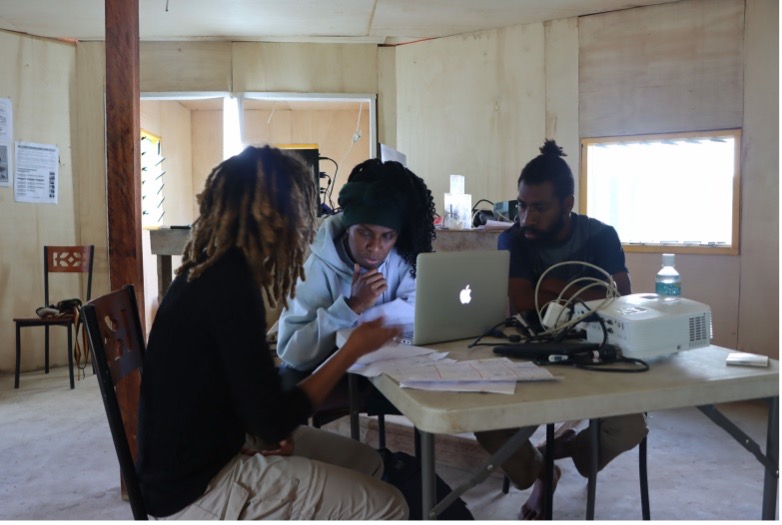 |
| Image 3. Each candidate edited their movie © WCS PNG |
Image 4. The jury, composed of 2 NFI representatives and 1 WCS representative, scored each candidates based on a set of criteria © WCS PNG |
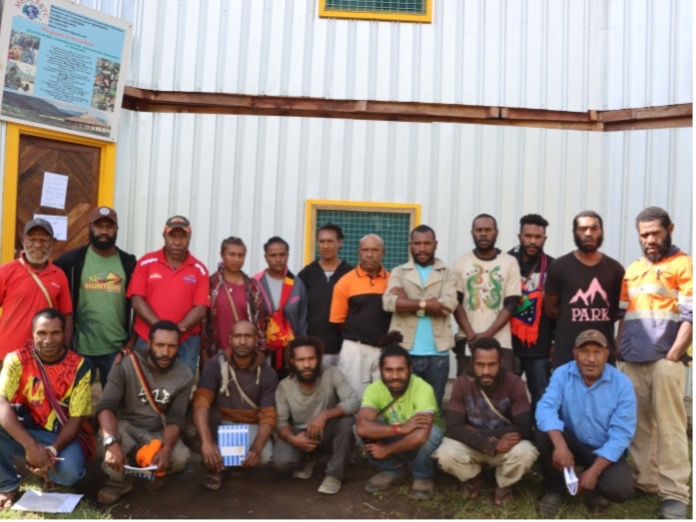 |
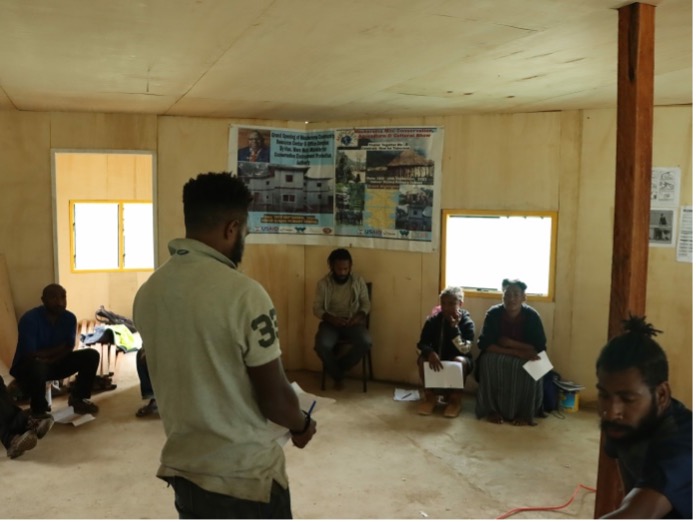 |
| Image 5. Seven from the 23 candidates were selected based on their performance and attitude during the 1st phase of the evaluation © WCS PNG |
Image 6. Each of the 7 remaining candidates made their script, choose their subjects and realized and edited their movie; they presented it to the other candidates and the jury © WCS PNG |
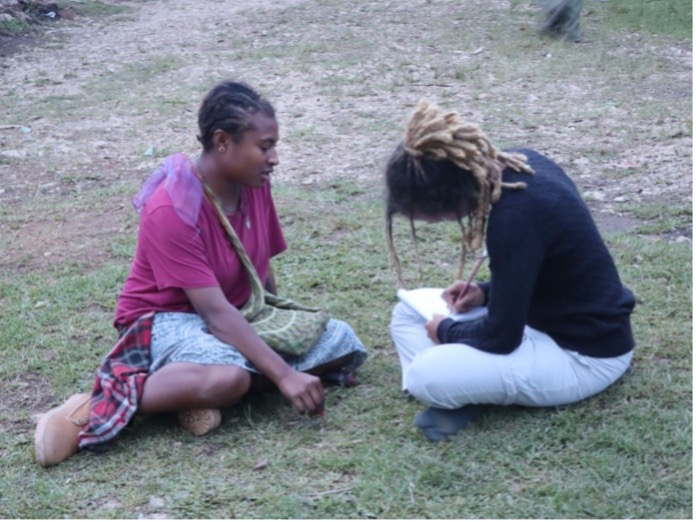 |
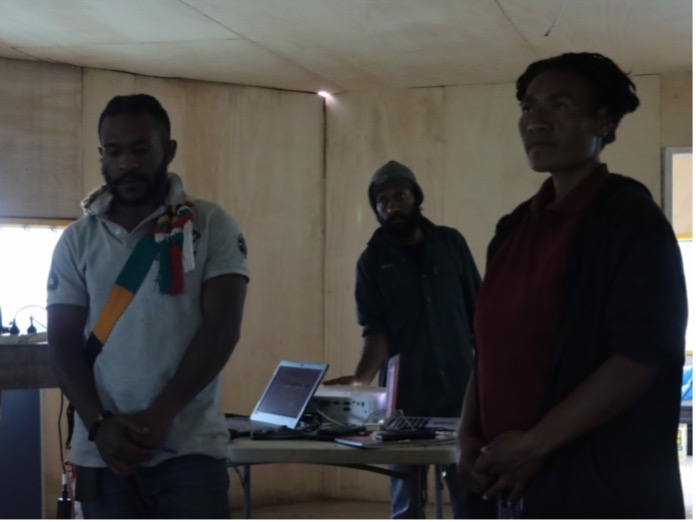 |
| Image 7. Each candidate was interviewed in order to assess their motivation and understanding of the C4C programme, as well as their personality and potential engagement © WCS PNG |
Image 8. The best man (Kaupa Eremuge) and best woman (Cecellia Sine) were selected from the 7 last candidates and offered the opportunity to receive further training in Goroka. The Director of MENCERTC (Moses Kerry, behind) was an observers and advisor during the entire selection process © WCS PNG |
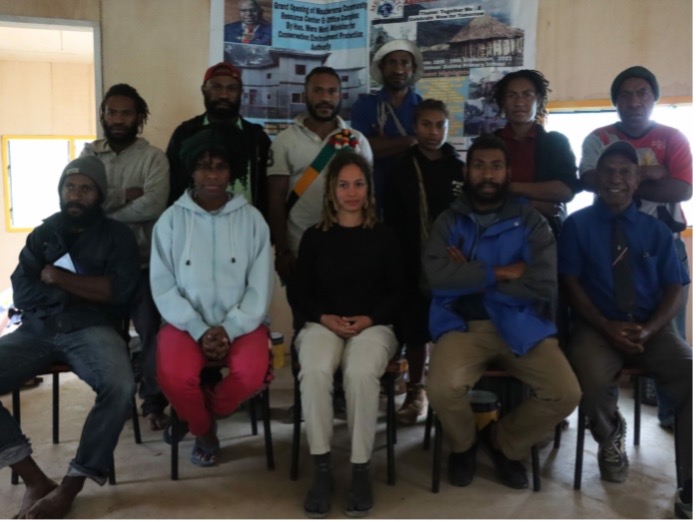 |
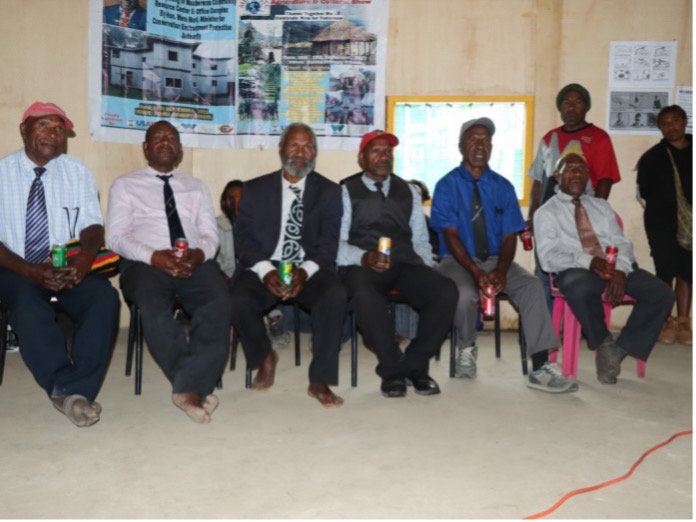 |
| Image 9. The candidates and evaluation coordination team. First rank (from left to right): MENCERTC director Mose Kerry, NFI Director Michelle Baru, WCS instructor and evaluator Susan Good, NFI assistant Ishmael Sepo, and MENCERTC community relation officer George Gola Dege. © WCS PNG |
Image 10. The presentation of the C4C selection methodology and results were presented to local authorities as well as the future steps, expected benefits and potential costs to the community, as part of the FPIC process. They were all impressed by the quality of the best move made by Kaupa Emeruge. © WCS PNG |
Through C4C each story-teller will receive the training and equipment they need to create a living library of video-stories that promote intergenerational exchange of cultural knowledge, attitudes and practices. This library will, over time, become an invaluable repository of learning accumulated over generations – wisdom that is essential for current and future generations to: 1) conserve and benefit from the wild plants and animals within community-owned lands, 2) preserve irreplaceable local knowledge, cultural identity, and language, and 3) empower and enable communities to share their voice and worldviews.
This training will be undertaken in partnership with ePop, a citizen network designed to create and share testimonials from families and communities impacted by environmental and climate change. ePop is supported by RFI Planet Radio and the Institute for Research and Development. Each trainee will be expected to film and edit a series of short-form videos that tell compelling stories about culture and nature in the Bismarck Mountains of Papua New Guinea. All films will be made available to national and international audiences through the ePop online network.
This unique programme was made possible thanks to the support from the Sustainable Wildlife Management (SWM) Programme funded by the European Union and the Lukautim Graun Programme, funded by the USAID.
__________________________________________________________________________
The SWM Programme is developing innovative solutions based on field projects in fifteen countries of Africa, the Caribbean and the Pacific to improve the conservation and sustainable use of wildlife in forest, savannah and wetland environments. This seven-year (2018-2024) initiative is funded by the European Union with co-funding from the French Facility for Global Environment and the French Development Agency (AFD). It is implemented by a unique consortium of four organizations with expertise in wildlife conservation and food security: the Food and Agriculture Organization of the United Nations (FAO), the French Agricultural Research Centre for International Development (CIRAD), the Center for International Forestry Research (CIFOR) and the Wildlife Conservation Society (WCS).